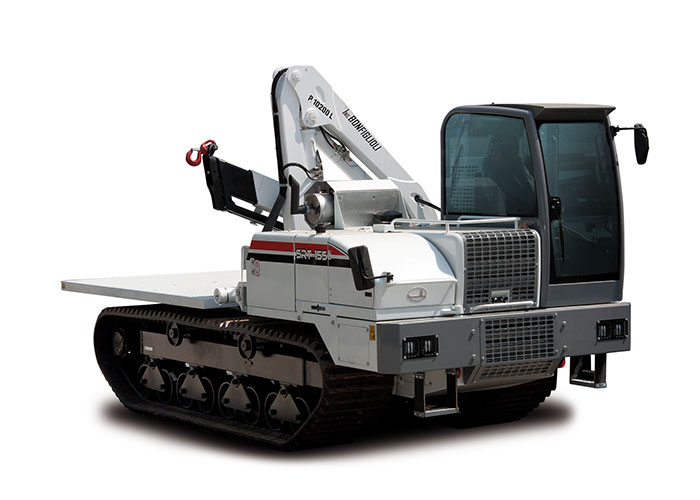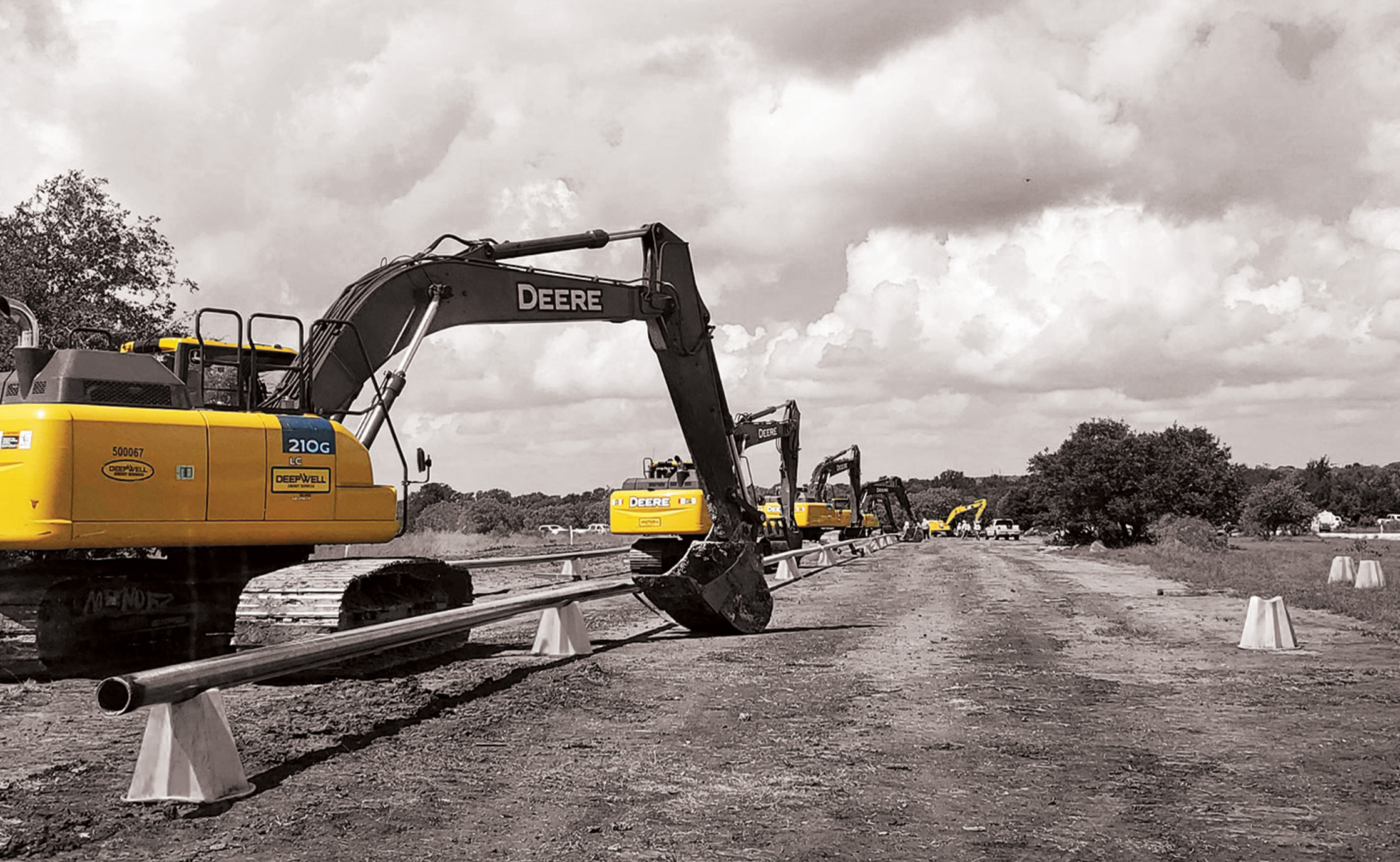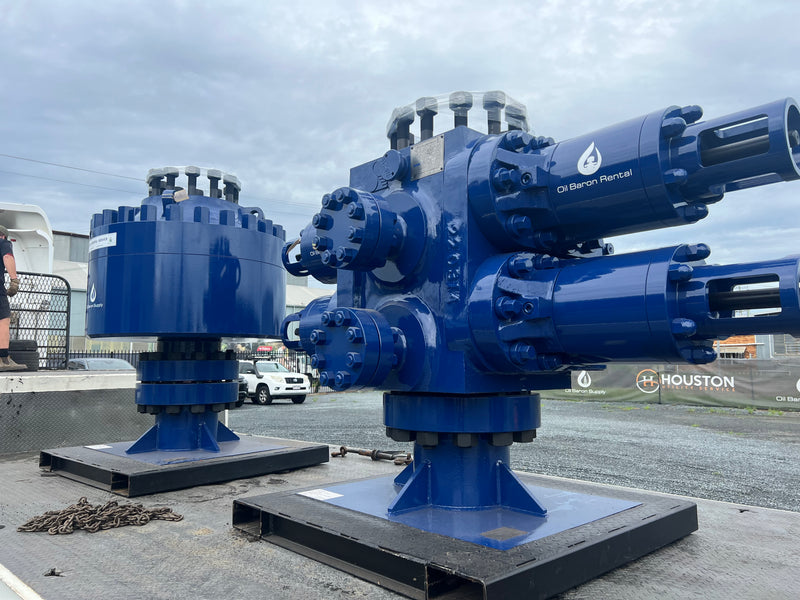Superior Rentals fusion machines: a complete guide for energy infrastructure
Wiki Article
A Comprehensive Guide to the Various Kinds Of Oil Field Equipment and Pipeline Equipment Available
The oil and gas industry relies heavily on specialized equipment for efficient removal and transport. Various types of machinery, from drilling rigs to tank, play essential duties in this intricate process. Each tool serves distinct functions that add to total functional success. Comprehending these elements is vital for any individual associated with the market. As the market evolves, so too do the modern technologies that sustain it. What improvements are on the horizon?
Drilling Rigs: The Backbone of Oil Expedition
Drilling rigs work as the vital equipment in the domain of oil exploration, making it possible for business to accessibility hydrocarbon reserves buried deep underneath the Planet's surface. These rigs are available in numerous kinds, including land rigs, offshore rigs, and mobile systems, each made to run in certain environments. Equipped with innovative innovation, piercing rigs can pass through geological formations with accuracy, making sure effective resource removal. The structural integrity and operational abilities of these rigs are crucial, as they should endure extreme problems and significant stress. In addition, the choice of a boring rig affects the general task expense and timeline, making it a vital factor to consider for oil firms looking for to maximize their expedition initiatives and maximize productivity in their operations.Pumps: Essential for Liquid Activity
In the oil removal process, the role of pumps is significant, promoting the activity of liquids throughout various stages of manufacturing. Pumps are essential for transporting petroleum, water, and various other liquids from below ground storage tanks to the surface and after that with pipelines to refineries. They come in numerous types, including centrifugal, favorable displacement, and completely submersible pumps, each offering particular purposes based upon the fluid characteristics and functional demands. Centrifugal pumps are commonly made use of for their effectiveness in high-flow applications, while positive variation pumps master taking care of thick liquids. The option of pump influences general efficiency, functional safety, and upkeep expenses. Proper selection and maintenance of pumps are important for maximizing production and decreasing downtime in oil field operations.Valves: Controlling Circulation and Pressure

Valves play a crucial duty in taking care of the flow and pressure of liquids within oil areas and pipelines. Various kinds of valves offer unique applications, each made to fulfill particular functions essential for reliable procedure - Superior Rentals Contact. Understanding the characteristics and uses these valves is important for optimizing system performance and safety
Kinds of Valves
Vital parts in oil field procedures, shutoffs play an essential role in controlling the flow and stress of liquids within pipelines and equipment. Various kinds of shutoffs are made use of to meet the diverse requirements of oil and gas production. Common kinds consist of entrance valves, which provide a straight-line flow and marginal stress decrease; globe shutoffs, understood for their strangling abilities; and ball valves, identified for their fast on/off control. Additionally, check valves protect against heartburn, while butterfly valves supply a light-weight remedy for controling flow. Each shutoff kind is developed with specific products and setups to withstand the rough conditions typically found in oil areas, making sure dependability and performance in procedures. Understanding these kinds is crucial for reliable system management.Valve Applications and Features
While different kinds of valves serve distinctive functions, their primary applications rotate around controlling circulation and stress within oil and gas systems. Valves such as entrance, world, and sphere shutoffs regulate liquid movement, making sure peak performance and security. Gateway valves are generally made use of for on/off control, offering marginal flow resistance. Globe shutoffs, on the other hand, offer specific flow guideline, making them ideal for throttling applications. Ball valves are preferred for their fast operation and tight securing capabilities. Additionally, stress safety valve are essential for avoiding system overpressure, securing tools integrity. Generally, the ideal selection and application of valves improve functional efficiency, making certain the reputable transportation of oil and gas via pipelines and processing facilities.Compressors: Enhancing Gas Transport
Compressors play a critical role in the efficient transport of gas, ensuring that it moves smoothly with pipelines over lengthy ranges. These tools raise the stress of all-natural gas, permitting it to conquer rubbing and altitude adjustments within the pipeline system. In addition, compressors promote the harmonizing of supply and need, suiting variations in intake and manufacturing prices. Various sorts of compressors are employed in the industry, including centrifugal, reciprocating, and rotating screw compressors, each offering distinctive benefits based upon the functional demands. Routine maintenance of these compressors is vital to make the most of effectiveness and minimize downtime, inevitably contributing to a reputable gas transport network. Their crucial feature highlights the significance of compressors in the total oil and gas facilities.Storage Tanks: Safe and Reliable Fluid Administration
Efficient transportation of natural gas relies upon numerous support group, one of which is the repipe near me proper management of storage space tanks. These storage tanks play an essential duty in securely including liquids, making certain that functional efficiency is kept while lessening environmental threats. Built from durable materials, they are designed to hold up against high stress and corrosive components. Correctly sized and purposefully located, storage space tanks facilitate the smooth circulation of natural gas and various other fluids, protecting against bottlenecks in supply chains. Normal maintenance and surveillance are crucial to spot leakages or structural problems, advertising security and compliance with regulative criteria. Eventually, the reliable management of storage space containers Continued is vital for the total integrity and dependability of the oil and gas sector's fluid handling systems.
Pipeline Solutions: Framework for Transportation
Pipeline systems function as the foundation of the oil and gas industry, assisting in the reliable transportation of hydrocarbons over large ranges. These systems include various elements, consisting of pipelines, valves, pumps, and compressors, all carefully created to assure seamless flow. The materials utilized in pipeline building and construction, often steel or high-density polyethylene, are chosen for longevity and resistance to corrosion. Pipeline networks can cover across land and water, linking manufacturing sites to refineries and distribution facilities. In addition, progressed modern technology enables real-time monitoring of flow rates and pressure levels, improving functional effectiveness. The calculated positioning of these pipes lessens ecological effect while maximizing resource accessibility, thereby playing a necessary duty in conference energy demands worldwide.Safety Equipment: Ensuring Worker and Environmental Protection
The procedure of pipeline systems, while crucial for power transportation, also presents substantial safety and security obstacles for workers and the environment. Safety tools plays a substantial function in reducing these dangers. Personal safety tools (PPE) such as safety helmets, handwear covers, and non-slip shoes safeguards workers from physical risks. Additionally, gas discovery systems keep an eye on for leaks, ensuring that harmful materials do not present a risk to workers or the surrounding environment. Emergency shutdown systems are critical for swiftly halting procedures during a situation, stopping potential calamities. Spill copper gas line containment products, including absorbents and obstacles, are fundamental for decreasing environmental influence. In general, spending in all-inclusive safety and security devices is critical for keeping operational honesty and safeguarding both employees and the environment in the oil and gas market.
Frequently Asked Concerns
Exactly how Do I Select the Right Oil Field Equipment for My Job?
Selecting the ideal oil field devices includes assessing project specifications, budget constraints, and functional needs. Think about variables such as tools integrity, compatibility with existing systems, and the vendor's track record to assure peak efficiency and security.What Are the Maintenance Requirements for Oil Field Equipment?
Maintenance needs for oil area devices include regular examinations, lubrication, and prompt repair services. Operators ought to also stick to supplier standards, screen performance metrics, and warranty conformity with security regulations to boost durability and efficiency.
Exactly How Can I Make Certain Compliance With Environmental Laws?
To assure compliance with environmental guidelines, firms must conduct routine audits, apply ideal practices, purchase training, preserve appropriate documents, and stay updated on regulations (Superior Oilfield Rentals Texas). Partnership with ecological companies can likewise boost adherence to guidelinesWhat Is the Ordinary Life-span of Pipeline Equipment?
The ordinary life-span of pipeline equipment typically varies from 20 to half a century, depending upon factors such as worldly quality, ecological conditions, and maintenance techniques. Routine evaluations can substantially influence longevity and functional performance.Just how Do I Safely Deliver Oil Field Equipment to Remote Locations?
Transporting oil area equipment to remote locations calls for mindful preparation, including course assessment, securing authorizations, making use of proper vehicles, and guaranteeing safety methods are complied with. Proper training and communication amongst teams are important for successful transport.Report this wiki page